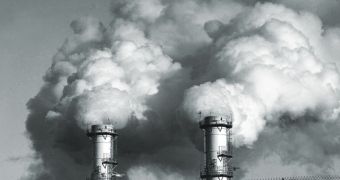A recent report, released by the investigation arm of the US Congress, revealed that the carbon offsetting scheme may not be the best way for governments of rich countries to go about reducing the carbon footprint they leave on the atmosphere yearly. Under the system, companies in developed nations are allowed to pay for various carbon-reducing initiatives in developing countries, which in turn wins them credits, allowing them to emit the same or even an increased amount of greenhouse gases (GHG).
For companies in the European Union, this is done through a mechanism called UN Clean Development, which allows them to invest considerable sums of money in countries such as Brazil or China, which are currently trying to stop the destruction of the Amazonian rain forests and to reduce the amount of refrigerant gases they release, respectively.
However, the main goal of the emerging carbon market – the place where all the carbon credits are traded between companies, and also converted into money – seems to be moving further away, the General Accountability Office (GAO) reports. While rich nations indeed help developing ones reduce their emissions, they don't take any steps towards reducing their own amounts of emitted pollution, which basically nullifies the whole point of having a carbon market.
GAO warns that a carbon offset system could easily override the future cap-and-trade system, to be implemented in the United States once president-elect Barack Obama takes full office, due to the fact that "it is not possible to ensure that every credit represents a real, measurable and long-term reduction in emissions."
Unlike carbon offsetting, a cap-and-trade system allows the companies to earn money if they lower their reduction levels beneath a certain margin, or to buy credits from companies that have already achieved that, in order to escape penalties. This accounts for a more direct approach to reducing the millions of tonnes of carbon that are pumped into the atmosphere every year.

 14 DAY TRIAL //
14 DAY TRIAL //